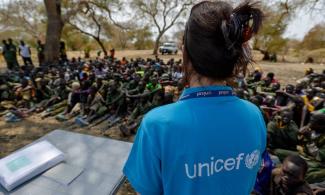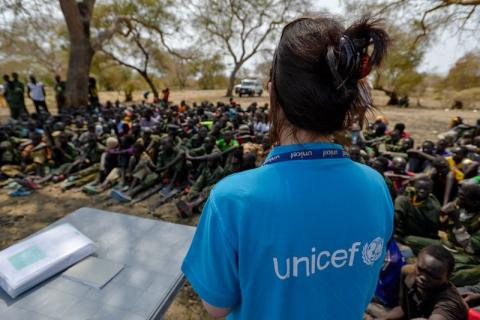
The United Nations Children’s Fund (UNICEF) yesterday said that at least 2,295 teachers had been killed in the North-east since the conflict started in 2009.
In a statement released on the eve of the April 14, fourth anniversary of the kidnap of over 200 schoolgirls in Chibok, Borno State, the UN agency also said more than 1,000 children had been abducted and 1,400 schools destroyed by the terrorists in the region since 2013.
“The four-year anniversary of the Chibok abduction reminds us that children in northeastern Nigeria continue to come under attack at a shocking scale. They are consistently targeted and exposed to brutal violence in their homes, schools and public places,” the UNICEF Representative in Nigeria, Mohamed Malick Fall, stated in the statement.

“Four years on from that tragic incident, more than 100 of the Chibok girls have yet to be returned to their families and the UN children’s agency continues to call for their release.
The recent attack on a school in Dapchi, Yobe State, in which five girls lost their lives, according to UNICEF noted, was the latest indication that “there are few safe spaces left for children in the North-east”.
“These repeated attacks against children in schools are unconscionable. Children have the right to education and protection, and the classroom must be a place where they are safe from harm.”
The UN agency said at least 2,295 teachers have been killed and more than 1,400 schools have been destroyed since the beginning of Boko Haram insurgency.
UNICEF noted that most of the schools affected had not reopened because of extensive damage or ongoing insecurity in the region.
“Nigerian authorities have made a commitment to make schools safer and more resilient to attack, and UNICEF stands with them to implement the Safe Schools Declaration, by which Nigeria commits to protecting schools and universities from violence and military use during armed conflict.”
